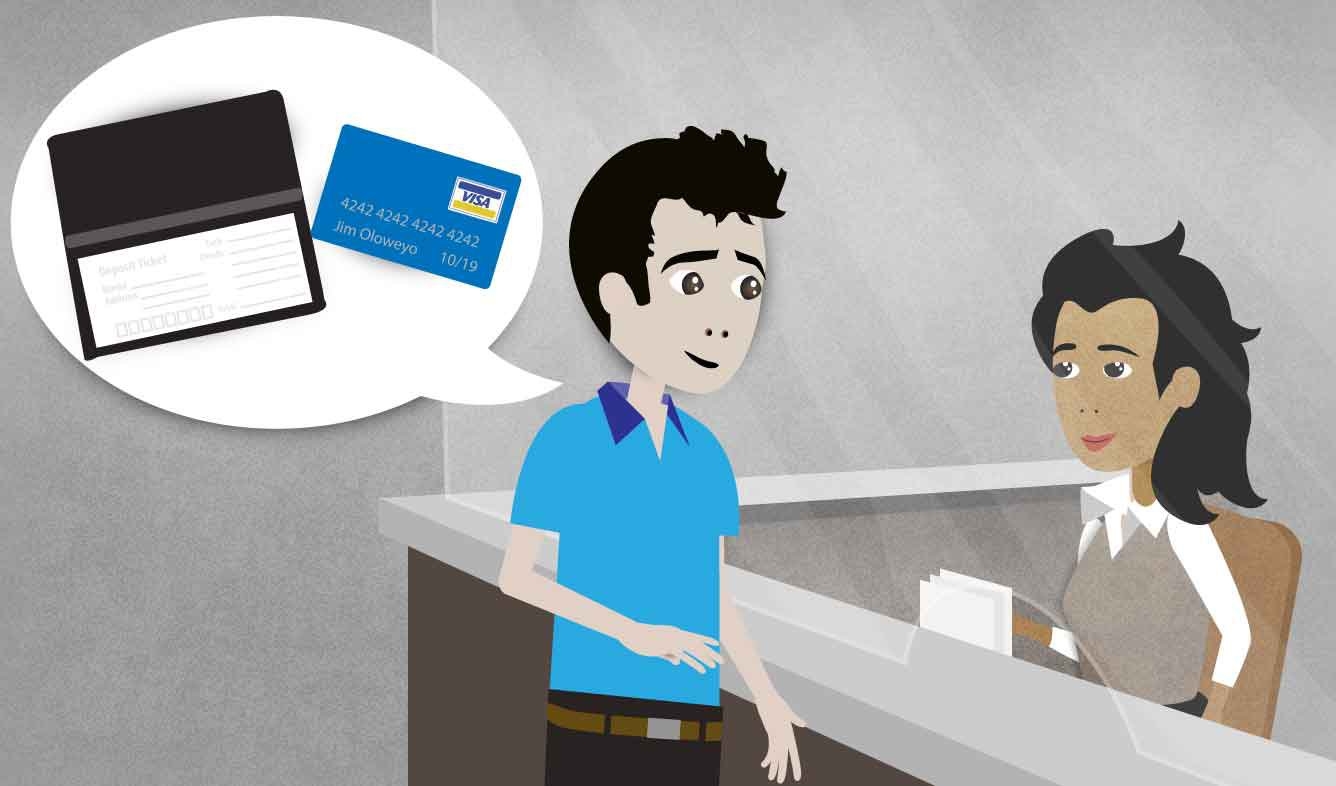“Excuse me, I wanted to see about opening a small business checking account.”
You're starting a business. You need a bank account, so you walk into a bank and say this to an employee who's sitting at the customer service desk.
Excuse me, I wanted to see about opening a small business checking account.
Want Video and Sound? Follow us on YouTube

Excuse me.
Say "Excuse me" to get the attention of strangers in a polite way:
Excuse me. Do you know where the bathroom is?
When you pronounce "excuse me", it can sound like "'Scuze me"
In some English-speaking areas, it's also polite to add "Sir" (for men) or "Ma'am" or "Miss" (for women):
Excuse me, Ma'am. You dropped this on the sidewalk back there.
But since these titles are actually thought to be impolite in some areas, it's best to listen first to see if other people around you are using them.
I wanted to (do something)
A very polite way to explain why you're doing something is "I wanted to ___". For example:
Hi Jen. I wanted to see if you'd like to come out with Emma and I and some friends of ours to a show next week.
Yes, I just wanted to verify that my payment has been received?
Some phrases that can be used after "wanted" include:
I wanted to ask...
I wanted to tell you...
I wanted to check to see if...
I wanted to remind you that...
I wanted to let you know that...
I wanted to find out whether...
Note that this is in past tense: you say "I wanted to ___" instead of "I want to ___". There's no grammatical reason for making it past tense; it just makes your sentence sound more polite. When you say it this way, it sounds like an explanation for why you're calling, why you're visiting, etc.
see about (doing something)
People use this phrase to talk about doing something that they haven't thought much about. The activity is usually something small and not that difficult.
For example:
Kathy, could you see about getting me some kind of filing cabinet for my office?
I'll see about getting us some dinner.
When you use this phrase, you sound uncertain whether you'll be able to succeed at the action that you're talking about.
open an account
When you "have an account" with a bank or a company, it means that there has been a customer relationship set up between you and the company. You and the company are able to pay money back and forth through this "account". Your bank account is one example. When you put money into your bank account, the bank keeps a record of how much money it owes you.
We use the word "open" to talk about starting such an account:
I'd like to open an account, please.
a small business checking account
A "small business checking account" is a type of bank account.
Most bank accounts fall into one of two categories:
- Checking accounts are for money that you need to spend. You can take money out by writing checks, or by withdrawing money from an ATM.
- Savings accounts are for saving money. You can earn more interest for the money that's in a savings account. You can take your money out of savings, but the bank may have restrictions on how often you can move money in and out of savings.
Banks offer "small business checking accounts" to businesses. These accounts have different rules than personal bank accounts.
